
Patellar tendon tears are a relatively common and severe tendon injury. Patellar tendon tears will require surgery in order to enable you to walk or return to sports again. Florida State quarterback Deondre Francois went down early in the 2017 season. He has a patella tendon tear and will be out the for the rest of the season as he recovers from his patellar tendon tear surgery.
There are many ways to tear or rupture your patella tendon. You can slip on ice, fall downstairs or perhaps you simply felt your knee give out. In the case of Jimmy Graham of the Seattle Seahawks, he simply landed awkwardly. If you tear your patellar tendon you will usually hear a loud pop. When you try to stand up you will notice that you can not straighten your knee, and the knee will feel very unstable and weak.
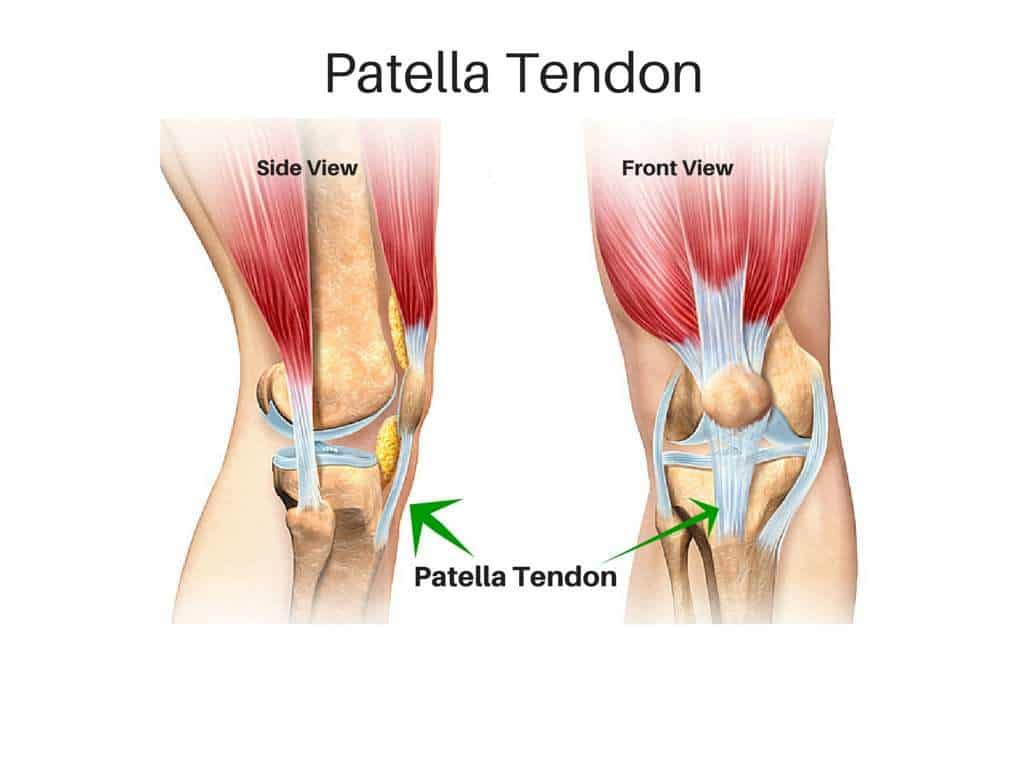 Patellar Tendon Tears
Patellar Tendon Tears
- What is the patellar tendon?
- Why did the tendon tear?
- Why is surgery needed for patella tendon tears?
The patellar tendon is an extremely strong tendon (actually a ligament) that connects the patella (kneecap) to the tibia. The patella tendon is an absolutely essential structure for walking or running. When the patella tendon tears you can not straighten your leg… or if you can move it, you will find your knee is very weak. This is because a tear in patella tendon basically disconnects your powerful quadriceps muscles from the tibia or shin bone. That means that the quads can no longer straighten or extend your knee.
Why is the patella tendon so important?
When you try to straighten your knee – your quadricep muscles pull the patella, the patella then pulls the patellar tendon which in turn pulls your tibia or leg forward. The side view of the patellar tendon above should help clarify that.
The patella tendon can degenerate or wear out like most other tendons in our body. Some of you might feel as if your leg simply gave out. That means that the tendon tore causing you to fall. Others have slipped on ice, fallen down the stairs, or took off to sprint after a ball on the basketball, football or soccer field and felt a pop. The patella tendon can tear for many reasons. The most critical step is what you do next.
If you have injured your knee and your knee can not support you because it gives out and feels weak then you may have torn your patella tendon. You will immediately need crutches and a brace to stabilize your knee and prevent injury from recurrent falls.
After your emergent treatment you will need to see an Orthopedist, preferably a Sports Medicine specialist trained in the management of soft tissue injuries. An MRI will usually be ordered to confirm where the tear in the patella tendon is.
Is Surgery Necessary for Patellar Tendon Tears?
Surgery is always recommended for complete patellar tendon tears. If your patella tendon is not repaired, you will not be able to walk without your leg constantly giving way. For professional athletes this is a severe season ending injury. This is due to the need for a lengthy recovery following a patella tendon repair.
At the time of surgery, your patella tendon will be reattached to the patella. During the surgery we place sutures in the patella tendon. Those sutures are then brought upward through a few holes in the patella. When we tie the sutures the patella will be brought back down to bring the torn edges of the tendon together. Many of us will also incorporate additional “tension relieving stitches” so that we can start an accelerated rehabilitation protocol to get you up and walking faster.
It can take nearly a year to recover from a patellar tendon tear. Surgery will lead to significant stiffness and quadriceps weakness. Therefore the recovery process will be long and require a lot of effort on your part after the tendon heals and the physical therapy and recovery phase begins. Having an Athletic Trainer or Physical Therapist work with you soon after surgery is important. They will start quadriceps activation exercises to minimize the amount of atrophy which will occur.
The risks of patella tendon surgery includes infection, stiffness, and developing blood clots in your leg. The risks are low, but never non-existent.
If you believe you have suffered a patella tendon tear, reach out to us or a local sports medicine professional as soon as possible. Any significant delay in your surgery can effect the overall results — which are generally excellent.
Can I Return To Sports After A Patella Tendon Repair?
A full recovery from a patella tendon repair will take 8-12 months. Professional athletes like Jimmy Graham should be able to return to the field after 8-9 months or more of extensive therapy. Many non-professionals can expect to return to an active lifestyle nearly a 8-12 months after a patella tendon repair.


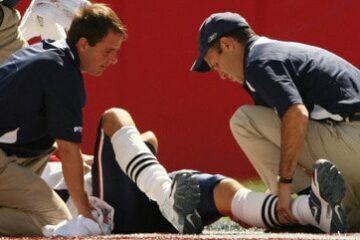
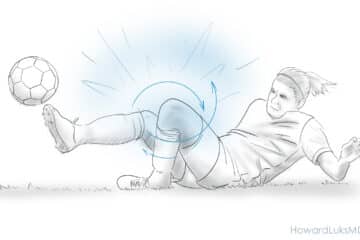
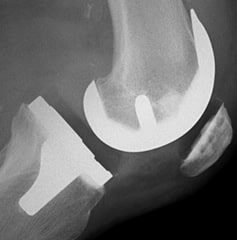
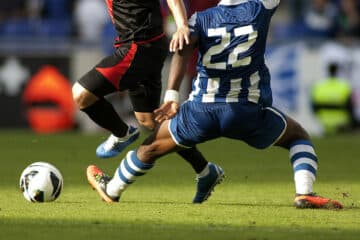








Hi , I ruptured my patella tendon 2 weeks ago and have been scheduled for surgery on Friday. Can the delay in treatment he the operation cause problems in the long term. Will I be able to get full rom and will I be able to play hockey again ( field hockey) Any advice is greatly relieved. Thanks.
Is shouldn’t theoretically have an effect.
Good Luck
How long should it take to removed a k. Wire after a tendon repaired. Please